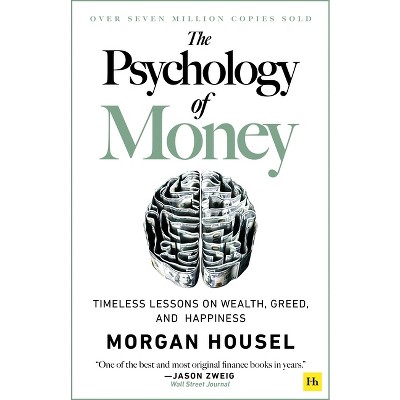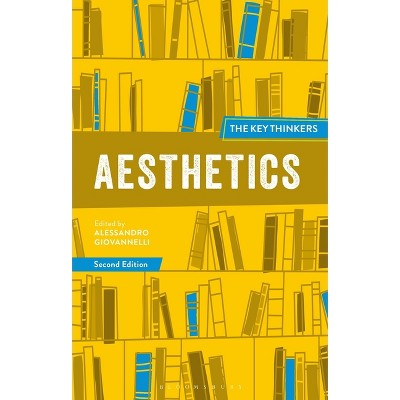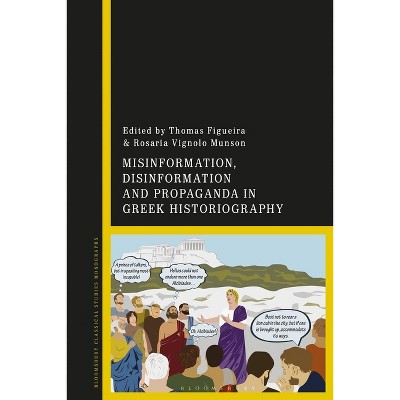Vico, Hegel and the Making of Modern Italy - by Alessandro de Arcangelis (Hardcover)

About this item
Highlights
- Embracing a transnational approach to 19th-century Italian intellectual history, this book examines the encounter and amalgamation of local and foreign philosophical traditions, chiefly represented by the thought of Giambattista Vico and Georg Wilhelm Friedrich Hegel, showcasing their contribution to shaping a historical mindset that guided and legitimised Italians' experiences of political change.
- About the Author: Alessandro De Arcangelis is a London-based intellectual historian.
- 288 Pages
- History, Europe
Description
About the Book
An examination of how 19th-century Italians engaged with dramatic experiences of political change through the philosophies of Hegel and Vico, which encouraged a pursuit of modernity.Book Synopsis
Embracing a transnational approach to 19th-century Italian intellectual history, this book examines the encounter and amalgamation of local and foreign philosophical traditions, chiefly represented by the thought of Giambattista Vico and Georg Wilhelm Friedrich Hegel, showcasing their contribution to shaping a historical mindset that guided and legitimised Italians' experiences of political change.
Taking a revisionist stance, the author challenges the prevailing view that Italian thinkers passively adopted foreign ideas. Instead, they engaged critically with them, questioning their conceptual foundations and applicability to Italy's political landscape. Vico, Hegel and the Making of Modern Italy reveals that Italian intellectuals sought cultural and political renewal, at both local and European levels, not through assimilation but through steadfast allegiance to a local strand of political thought inspired by Vico's humanist historicism. The book ultimately explores how philosophical thought empowered Italian intellectuals to navigate the uncertainties, drama, and energy of the Risorgimento, underscoring the enduring significance of philosophical knowledge in shaping Italy's political trajectory.Review Quotes
"Risorgimento political thought amalgamated the philosophies of Giambattista Vico and of Georg Wilhelm Friedrich Hegel to generate radically new notions of time, progress, and history that deeply affected the cultural and political imagination of modern Italy. Alessandro De Arcangelis' book shows how the Italian engagement with Europe's philosophical tradition determined an emerging nation to articulate an idea of itself that was closely related to what Europe perceived as cultural and political progress, without abandoning the roots of its own past. Any future debate on the making of modern Italy among historians, philosophers or political theorists will have to take account of this book." --Axel Körner, Leipzig University, Germany
"Italian political thought in the Risorgimento still stands at the margins of general histories of liberalism. By recovering the history of Neapolitan philosophy up to the creation of the Kingdom of Italy, Alessandro de Arcangelis puts the Italian peninsula at the centre of Europe's debates about liberty, the state, and nationality. He does so by showing the extent to which Neapolitan philosophers engaged with Hegel's philosophy imaginatively, and combined it with their own intellectual tradition, to produce a set of highly original reflections. All in all, an important scholarly contribution." --Maurizio Isabella, Professor of Modern History, Queen Mary University of London, UK "In contrast to the dark, introverted images that dominate recent interpretations of Italian nationalism, this magnificently researched study reasserts the progressive and democratic aspirations of the Risorgimento. Focusing on how the writings of the 18th century southern philosophers Giambattitista Vico and the Neapolitan Enlightenment enabled Italy's 19th century political thinkers to reflect critically on the ideas of the new century and respond with originality to the great questions of nationhood, modernity and political change, this passionately argued book restores Italy's Risorgimento to its rightful place in the mainstream of European debates on progress and modernity." --John A Davis, Professor of Modern Italian History Emeritus, University of Connecticut, USAAbout the Author
Alessandro De Arcangelis is a London-based intellectual historian. His research concentrates on the history of modern Europe's political, historical, and environmental thought in the eighteenth and nineteenth centuries, with particular focus on transnational encounters and cross-cultural exchanges.










